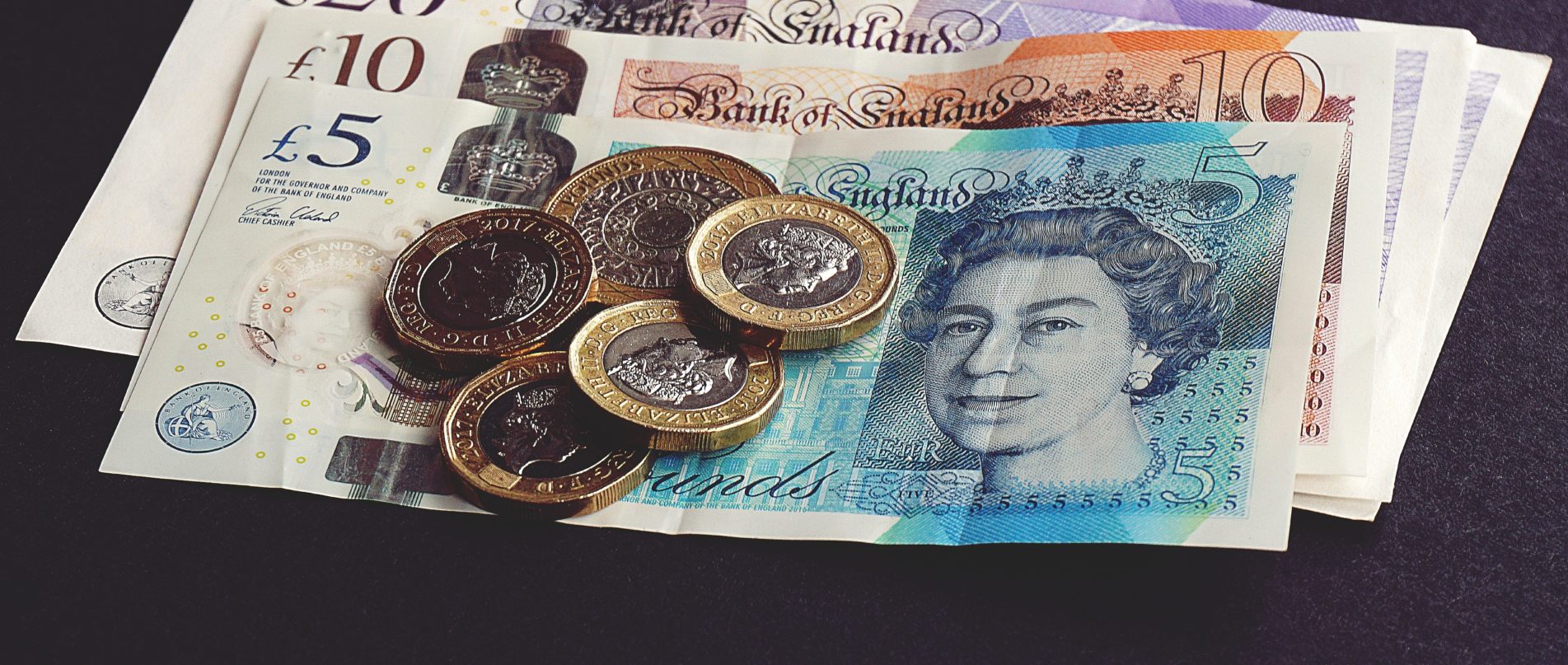
Prompt Images
You’d think I’d be weirded out, having people offer me their condolences for someone I never met. But as I’ve made it no secret that I am a lover of the British (I mean, it actually says that in my Twitter bio), it didn’t come as a surprise that when the Queen of England died, people thought I would be emotional about it.
And I was. When the screen of the BBC switched to “News Report,” and the anchor, dressed in black, delivered the news that the monarch had died, I did cry. It’s a habit of mine, crying for people I haven’t met—celebrities, leaders, everyday people suffering—and this was not the occasion I was going to break that habit, especially when the media was using well-placed clips of Paddington Bear and Corgis to tug at my heartstrings.
That night, as I continued to watch the rolling BBC coverage, I went into my bedroom, and from under my bed pulled out a cup of change I had accumulated over the years. Interesting American currency, some Euros, and a pile of British pounds. I was there for the latter, sifting through coins, seeing the silver and gold change pressed with the effigy of Queen Elizabeth II.
One coin came from my grandpa’s collection and was branded with the year 1956.
At that point, Her Majesty’s image had only been on coins for three years, one less than she had been queen at the time, ascending after the death of her father. In the 1960s her face began appearing on bank notes, a first for any monarch, and for nearly 60 years, has remained there.
As I sorted through the pile, the vast majority of the change was marked with years in the 1990s to 2000s, collected when I studied abroad in London in 2014. I remember when the pound and pence coins first landed in my palm. I was at Heathrow, coming down from the high of surviving my first transatlantic flight, and waiting for the rest of my study abroad cohort to arrive.
My parents had wanted me to call when I got in, and as my Skype calls weren’t going through, I turned to the old-school payphone and phone card to do it.
I made a currency exchange, and received a handful of coins in return.
Most of them were thick, having a heft that our American currency did not, and denominations that we did not either, £1 and £2 coming in coins rather than our bills. I can still picture turning them over in my hand, looking at the amounts inscribed into their sides, and the images of royal crests and flowers on one face, and of course, that image of the queen on the other. Shiny and new to me, I thought they were beautiful, not only in image, but for what they stood for.
At 20, I hadn’t left home before.
I hadn’t been out of the United States. I hadn’t flown in more than a decade. But here I was pushing through my fear and anxiety to be in this country I had dreamed about since I watched my first Harry Potter film. I made it.
Hundreds of those coins passed from my hands in the three months I was in England. I poured most of that first batch into the payphone, and still failed to reach my parents. I used them when we went out to the pub that first night, and to buy souvenirs near Trafalgar Square and Buckingham Palace. I gladly shelled them out to buy a delicious baguette sandwich in Hyde Park, books from Stonehenge, t-shirts from Platform 9 3/4, gingerbread cookies from Harrods, heaps of scarves from the Camden Market, and a delicious burger from Burger King after seeing the cast of The Hunger Games at their premiere.
When it came time to leave in December, I boarded the plane with a Butterbeer cup-full of them as well as tears in my eyes at having to say goodbye to a country that I could only describe as magic.
I realize that’s a privileged view to have of a country that played its hand in the slave trade and for a long time thrived on colonialism and imperialism, and to extent still does. I won’t deny its role or that there are parts of its history that make me uncomfortable. Hell, there are parts of its present that do (Brexit, the UK’s response to the migrant crisis, and Meghan Markle, just to name a few). But I also won’t deny all that country gave me, the wonder instilled and continues to.
My memories, I’m sure, are lit in the golden glow of nostalgia, making even the worst moments of my time there seem almost comical looking back. But isn’t that what happens with our first loves, be they people or countries? They’re always special, no matter the heartbreak or troubles in them.
Another commonality: our time with first loves is fleeting, but it changes us all the same.
Looking back, I can trace the origins of many things I treasure now to that island. It made me more grateful, independent, confident, and brave. It gave me wonderful friends who opened up my world, and without whom I wouldn’t be writing for this site (shout out to Emma for pointing me towards it). It made me better.
Sitting on my bed with that cup of change nearly eight years to the day I first stepped on British soil, the nostalgia extended to its figurehead, too. Like the first Queen Elizabeth I had studied while I was in London, a queen who defined an era and dedicated her life to the country, this Queen Elizabeth will be relegated to portraits and stories and textbooks as well.
As one news correspondent said of the days of mourning, we were watching history pass before us.
The embankment from which I had first seen Big Ben became lined with people queuing to say goodbye to their longest-serving queen. The Mall my friends and I walked to Buckingham Palace, giddy and taking goofy photos, became the location of a procession, teeming with flowers, pomp and circumstance, and families forced to publicly mourn in a way that seemed almost inhumane. The juxtaposition to me was striking and tear jerking, a reminder of what was and would never be again, no matter how hard we try to hold onto the former.
All things change, from monarchs who seemed like they would live forever, to places etched in our memory, all the way down to the money in my hand. One day soon, the effigy on these coins will be reprinted, the countenance of a queen replaced by that of a king, and this money will lose its value. One day, regents may not exist at all, let alone on a bill or ten pence piece.
History is constantly passing before us, be it our own or of the world. It is rare that we recognize it as it’s happening. But these moments, like the currency I sorted through in my bedroom, signal real change, indelible markers in lives where so much—including ourselves—is fleeting.



